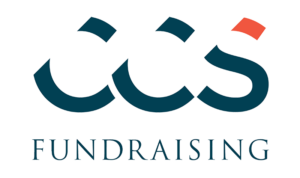I once knew a man named Lauren, a name that was once popular for men but has since “gone out of fashion.” In a previous nonprofit position, I was surprised to find him in our database—and even more surprised to see someone had marked his gender as female and going so far as to add a “Ms.” to his salutation. I quietly corrected the mistake.
Someone else quietly changed it back.
Their intentions were good—they wanted to expand our data collection, ensuring that all the Johns and Janes of the world had appropriate gender markers and salutations for future event invites and direct mailings. However, without proper protocols about when and how to update donor records, they contributed to what is known as dirty data.
The database kept an audit log of all changes, so I found the culprit and explained that, no, this donor is not a woman; can you please leave the record as you found it? This honest mistake could have resulted in a slight to Lauren, someone whom I knew had been on the receiving end of honest data mistakes his whole life and who would appreciate an organization to which he donated a significant sum to correctly address him as “Mr.”
The world is full of Laurens—donors with unusual names, donors whose data points invite contradictions of how we expect to categorize people. Our world exists beyond binaries, but that’s not always the case for the tools that we use. It’s time to think about how we ensure that our data honors our donors through data integrity and inclusion. Below are some considerations for thoughtful and intentional data collection and application.
steps toward data inclusivity
Tracking Meaningful Data
We tend to think that the more data we have, the better. However, I often work with organizations with too much data—too many options to choose from upon data entry, data tracked in the wrong field, and data collected in online donation forms that are never used.
A key data integrity component is tracking the data that will lead your organization to relevant insights and outcomes. In the case of the dirty data culprit mentioned above, they wanted to invite women to events hosted by our organization’s women’s giving circle in the hope that they would become more philanthropically involved. Gender was a meaningful data point to track (though I would argue that gender is rarely relevant outside of specific gender-targeting initiatives like the women’s giving circle). The problem was that the data was not donor-provided—it was employee-assumed.
Your organization should determine what data is most important to achieving success. Often this starts by asking, “What does success look like for us?” and then working backward to understand what data points will inform your goals. For instance, if you want to expand your direct marketing, you would require addresses and emails on forms that donors and prospects fill out and run queries to check for inaccuracies in either field (such as gmal.com vs. gmail.com). Creating data standards and protocols that outline when and who enters integral data is equally important—these guardrails help organizations keep their data clean and trustworthy.
Addressing Donors With Respect
I once worked at an organization with around 60 salutation options on their online donation form. Trying to choose a title was one long, seemingly endless scroll. With the approval of the chief development officer, I narrowed the list down to a reasonable number of salutation options to improve the donor experience—and added an option as well.
Mx. (pronounced “mix”) is a gender-inclusive salutation often used by individuals who are not strictly male or female. Adding this option to the form signaled to donors that our organization valued and made space for donors who live outside the binary of Mr. and Mrs./Ms. As a trans person, it was vitally important to me that our data reflected the diversity of our donors.
Donors trust organizations to keep their data safe. If someone shares their information with an organization, it’s up to that organization to honor it. Adding gender-inclusive options to data fields allows organizations to accurately and respectfully capture information about their donors. Beyond salutations, organizations should consider tracking pronouns—pronouns are used daily and are critical to referring to someone with dignity. Capturing and using the correct pronouns is another way of valuing donors, and expanding data to account for gender diversity gives organizations helpful markers to aid stewardship.
Connecting the Donor Dots
With the passing of the Obergefell ruling, nonprofits are seeing an increase in LGBTQ+ philanthropy, as more couples who can legally marry now choose to donate together. Often the spouses do not have the same last name—leading to a data integrity breach. Each person in the relationship receives separate solicitations because they have not been labeled as a single household in a database.
HOW GOOD DATA AFFECTS DONOR STEWARDSHIP
This challenge is not limited to LGBTQ+ donors—over the years, I’ve seen the use of “Mrs.” decrease as younger donors seem less interested in titles or adopting their husband’s last name. However, it’s important that organizations do their best to link these donors and develop stewardship plans involving both partners. Linking and soft crediting the donors accurately captures their combined donation totals and ensures both partners are involved in their philanthropic giving. Treating spouses who wish to donate together as a single entity demonstrates that your organization respects their union and appreciates their giving—no one should allow poor data practices to get in the way of good donor stewardship.
More Insights
Custom GPTs for Fundraising: A Nonprofit Guide
Learn about Custom Generative Pre-Trained Transformers (GPTs), their application in fundraising, and how you can harness their capabilities to streamline your fundraising efforts and forge deeper connections with donors.
Optimize Major Gift Portfolios Using Predictive Modeling Scores
Major gift portfolios determine where relationship managers will spend their time and energy. So, how can nonprofits ensure they’re focusing on the right donors?
